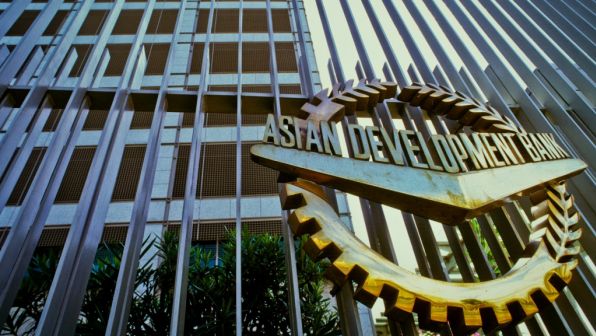April, 6, 2020

The ADB in its latest report, Asian Development Outlook (ADO) 2020 released on Friday (3) forecasted significant headwinds for Sri Lanka’s economy as it fights the spread of COVID-19, which comes less than 12 months after the terror attacks in April 2019.
ADB projects Sri Lanka’s economic growth to fall to 2.2% in 2020 and recover moderately to 3.5% in 2021.
This slowdown comes against the backdrop of a global public health crisis that has halted economic activities across many economies in the region and beyond.
Growth in Asia and the Pacific is projected to slow sharply to 2.2% in 2020 with a recovery to 6.2% in 2021, while growth in South Asia is expected to average 4.1% in 2020 and then improve to 6.0% in 2021.
With the domestic outbreak of COVID-19, Sri Lanka’s growth projection comes with significant downside risks—growth could be lower by another 1.0 to 1.5 percentage points, depending on the severity and the duration of domestic infection.
However, quick measures to contain the domestic spread of the virus and policy action to provide relief to those adversely affected could mitigate the fallout.
“The projected slowdown is in sharp contrast to earlier signs of a growth rebound in 2020. COVID-19 and the measures required to contain it have curtailed movement of labor, disrupted livelihoods and supply chains, and created cash flow problems for businesses, representing simultaneous demand and supply shocks,” said ADB’s Senior Country Economist for Sri Lanka Utsav Kumar. “So, the longer this disruption lasts the greater the risk to Sri Lanka’s growth prospects.”
Support for public health services and financial support for households and businesses will add new spending pressures for the government amid lower revenue collection in 2020 as economic activity weakens.
This will push the fiscal deficit up, amid already high public debt and external refinancing needs. Export and tourism earnings, as well as remittances will weaken amid a global slowdown.
However, lower imports reflecting the reduction in global oil prices and energy demand, subdued domestic demand, and restrictions imposed on imports by the Central Bank of Sri Lanka will help to keep the current account deficit in check, which is expected to widen to 2.8% of GDP in 2020 before falling to 2.6% in 2021.
Looking beyond the immediate challenge of weathering the ongoing health crisis and its economic fallout, there is an urgent need to reduce reliance on a narrow economic base, which can amplify the effect of adverse shocks.
This year’s ADO highlights Sri Lanka’s participation in global value chains (GVC), which if increased could help diversify the country’s economic base.
Data from ADB’s Multiregional Input–Output Database shows that Sri Lanka’s industries have stronger backward linkages than forward linkages—they tend to rely more on foreign intermediates than they supply to foreign producers of final products. In both these aspects, the country trails Malaysia, Thailand, and Viet Nam but is on par with South Asian neighbors such as Bangladesh, India, and Nepal. Policy measures to support GVC participation include investor-friendly policies to attract foreign direct investment such as liberal trade policy, modernizing and simplifying the trade facilitation regime, and developing close linkages with and improving access to GVC hubs in Asia.
ADB is committed to achieving a prosperous, inclusive, resilient, and sustainable Asia and the Pacific, while sustaining its efforts to eradicate extreme poverty. Established in 1966, it is owned by 68 members—49 from the region.
Video Story